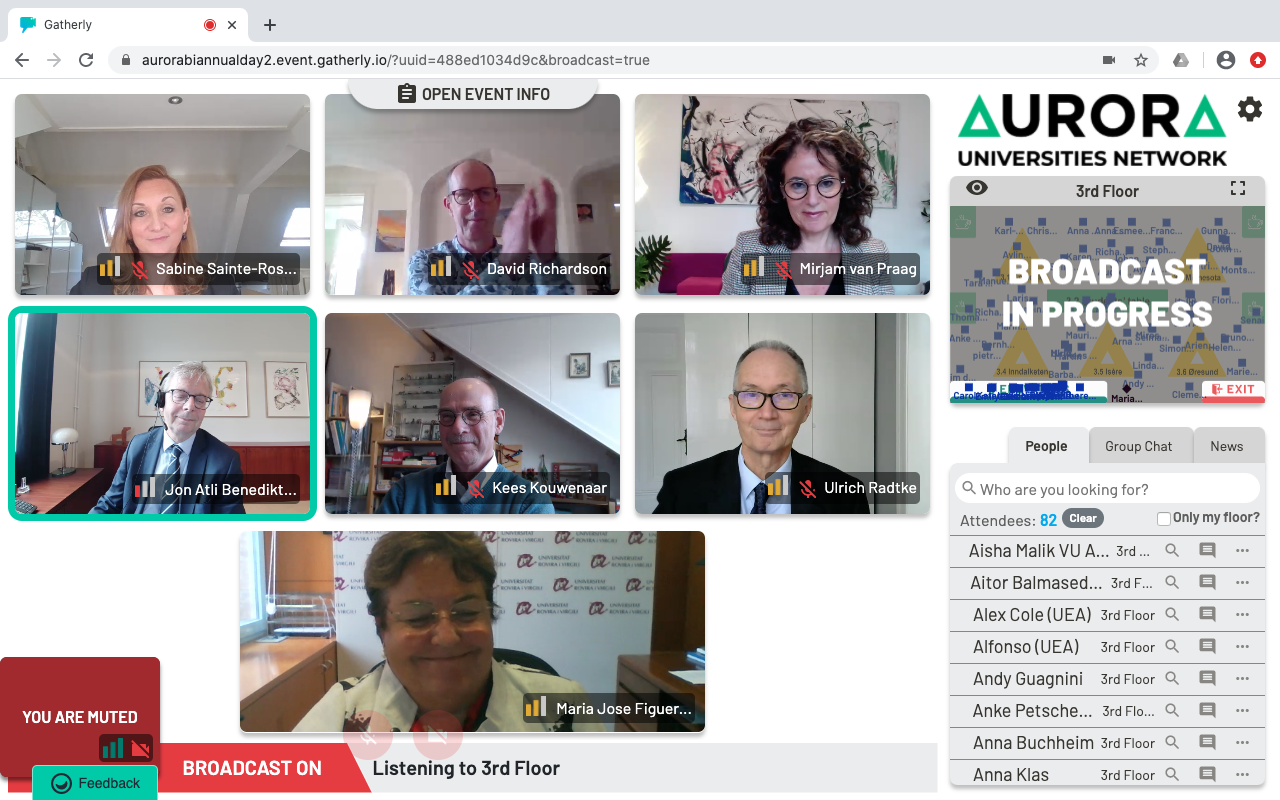On May 20th and 21st, Aurora will hold its 10th Biannual Meeting. Spread over the entire day of Thursday, May 20th and Friday, May 21st until Mid-afternoon, academics, students, university leaders and administrators will come together to continue ongoing work, meet new colleagues and celebrate existing friendships.
The Aurora Spring 2021 Biannual commences with a plenary session featuring Head of the Cabinet to Mariya Gabriel, European Commissioner for Innovation, Research, Education, Culture and Youth Adrienn Király and a panel discussion on the future of academic collaboration between British and other European universities Brexit. Prof. Paul Boyle, the vice-chancellor of Swansea University, UK and EUA Vice-President, will discuss this and join a panel discussion with Prof. Yassine Lakhnech (president of the University of Grenoble Alpes, member of Aurora) and Emily Reise, Aurora student representative (UIce). The panel will be moderated by John Style, Vice-Rector International of the Universitat Rovira i Virgili.
The first full day on May 20th will end with a lively and informal virtual reception. Jón Atli Benediktsson will be introducing the incoming Aurora Secretary-General, Anne-May Janssen
In between plenary and reception, the first Biannual day will offer many active Aurora task teams the time to sit and work together in parallel time slots in the morning and early afternoon. Simultaneously, the Aurora presidents will discuss their vision of Aurora’s future and the future benefits of being an Aurora university.
The afternoon will also feature four broad parallel sessions, each covering one of the more overarching themes of Aurora, such as “Education”, “Stakeholders”, “Academic engagement”, and “Sustainability”. Aurora welcomes president Joan Gabel of the University of Minnesota as a guest of honour. President Gabel will take part in the “Sustainability” session and share her views on the topic.
On Friday, May 21st, both the Aurora Universities Network and the Aurora European University Alliance will have a session of their respective supreme governance bodies: the Network General Council and the Alliance Board of Presidents. These formal meetings will be part of the first and second Friday parallel timeslots. The Aurora Network, General Council meeting, will run concurrently with many dissemination sessions. Aurora Biannual participants can find out about tools and services being developed to help Aurora academics, students and administrators. The Aurora Alliance Board of President’s meeting will run simultaneously with more task team working sessions.
Virtual venue & registration
The virtual conference platform will allow us to switch between formal sessions and meeting informally and casually as we see each other passing by the Aurora Biannual lounges.
Registration is through this link. We will liaise on registered participants with the institutional coordinators of your university, and we invite you to also inform your institutional coordinator of your intention to participate. Once your registration is confirmed, you will receive information by May 13th at the latest on how to log on to the virtual conference platform and instructions on how to navigate it.
Please access the program by clicking the green button below.


